By Sumaiya Farheen, September 2023.

Menopause and Polycystic Ovary Syndrome (PCOS) are significant phases in a woman’s life, each bringing its own set of challenges. While they may seem unrelated, these two conditions share a common link through hormone changes.
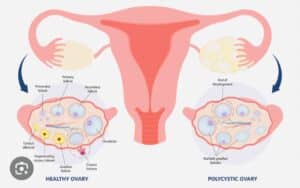
In this blog post, we’ll explore how diet, physical symptoms like frozen shoulder and back pain, pregnancy concerns, and Hormone Replacement Therapy (HRT) intersect in the context of menopause and PCOS.
Menopause and Diet – 5 Foods To Lose Weight
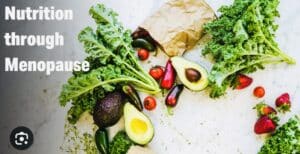
Incorporate nutrient-dense foods like fruits, vegetables, whole grains, and lean proteins like baked chicken, to support hormonal balance.
Consume foods rich in calcium and vitamin D like baked salmon, to help maintain bone health, which can be affected during menopause.
Limit caffeine and alcohol, as they can exacerbate hot flashes and disrupt sleep patterns.
Stay hydrated to combat dry skin and vaginal discomfort associated with menopause.
PCOS Effects
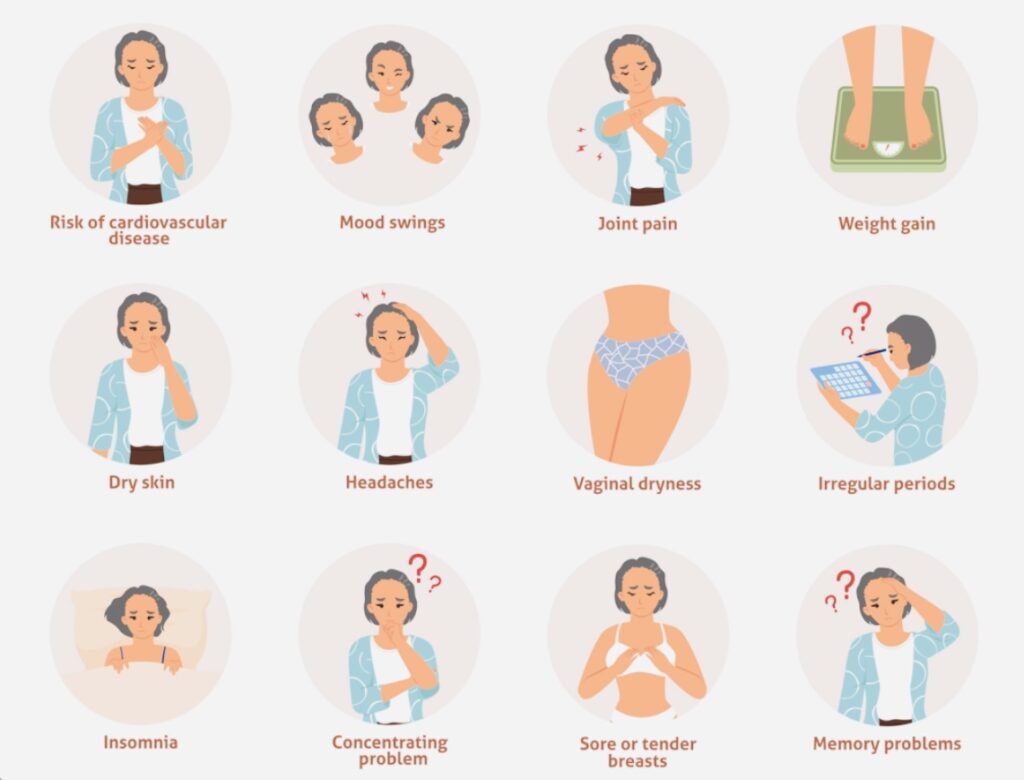
A low glycemic index (GI) diet can help manage PCOS symptoms by stabilizing blood sugar levels.
Focus on complex carbohydrates like whole grains and legumes, which release energy slowly, preventing spikes in insulin.
Adequate fiber intake supports digestive health and may aid in weight management.
Focused, regular exercise can improve insulin sensitivity and help manage weight.
Menopause, Frozen Shoulder, and Back Pain
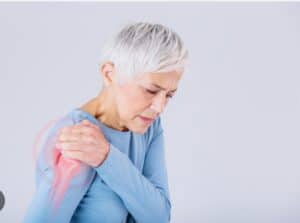
Hormonal changes during menopause can impact joint health and lead to conditions like frozen shoulder and back pain.
Engage in regular physical activity to maintain joint flexibility and strength.
Stretching exercises can alleviate frozen shoulder symptoms.
Proper posture and core-strengthening exercises may help reduce back pain.
Women’s Health – Mental and Physical
Here at Back To Health Wellness, we understand the link between a woman’s physical and mental health and their concerns. We are well adept at treating physical aches and pains, incl pelvic floor rehabilitation for continence issues, and we can advise self-care strategies to improve general health, mood, sleep and well-being.
Our Osteopath, Physiotherapists and Massage therapists are also trained to ensure you are fully prepared for pregnancy and labour. Whether you are suffering from pregnancy-related musculoskeletal problems like back pain, pelvic pain, sciatica or carpal tunnel syndrome our team can help.
PCOS/Pregnancy and Cravings

PCOS and pregnancy can come with intense cravings, but it’s essential to make healthy choices.
Opt for nutrient-dense snacks like fresh fruit, nuts, or yogurt when cravings strike.
Stay hydrated to help manage cravings and control calorie intake.
Focus on a balanced diet to ensure both you and your baby get the necessary nutrients.
Regular massage treatments can help to regulate hormone levels and alleviate the symptoms of PCOS and Pregnancy. Manual lymphatic drainage is particularly recommended.
Hormone Changes: The Common Link
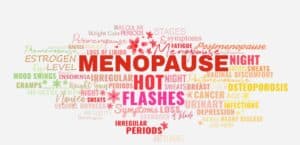
Both menopause and PCOS involve significant hormone changes, albeit in different ways. Menopause represents the natural cessation of reproductive hormones, while PCOS disrupts hormonal balance with increased androgen levels.
HRT During Menopause

Hormone Replacement Therapy (HRT) can help alleviate menopausal symptoms by replenishing estrogen and progesterone levels.
Discuss HRT with your healthcare provider to determine if it’s suitable for you.
Weigh the benefits and risks, as HRT may increase the risk of certain health conditions.
Consider alternative therapies, such as lifestyle modifications.
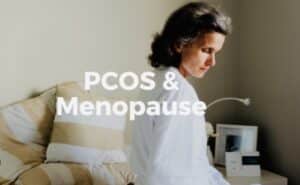
Menopause and PCOS may seem unrelated at first glance, but they both revolve around the intricate dance of hormones within a woman’s body. By adopting a holistic approach that includes a balanced diet, regular exercise, and thoughtful management of symptoms, women can navigate these life stages with grace and resilience.

